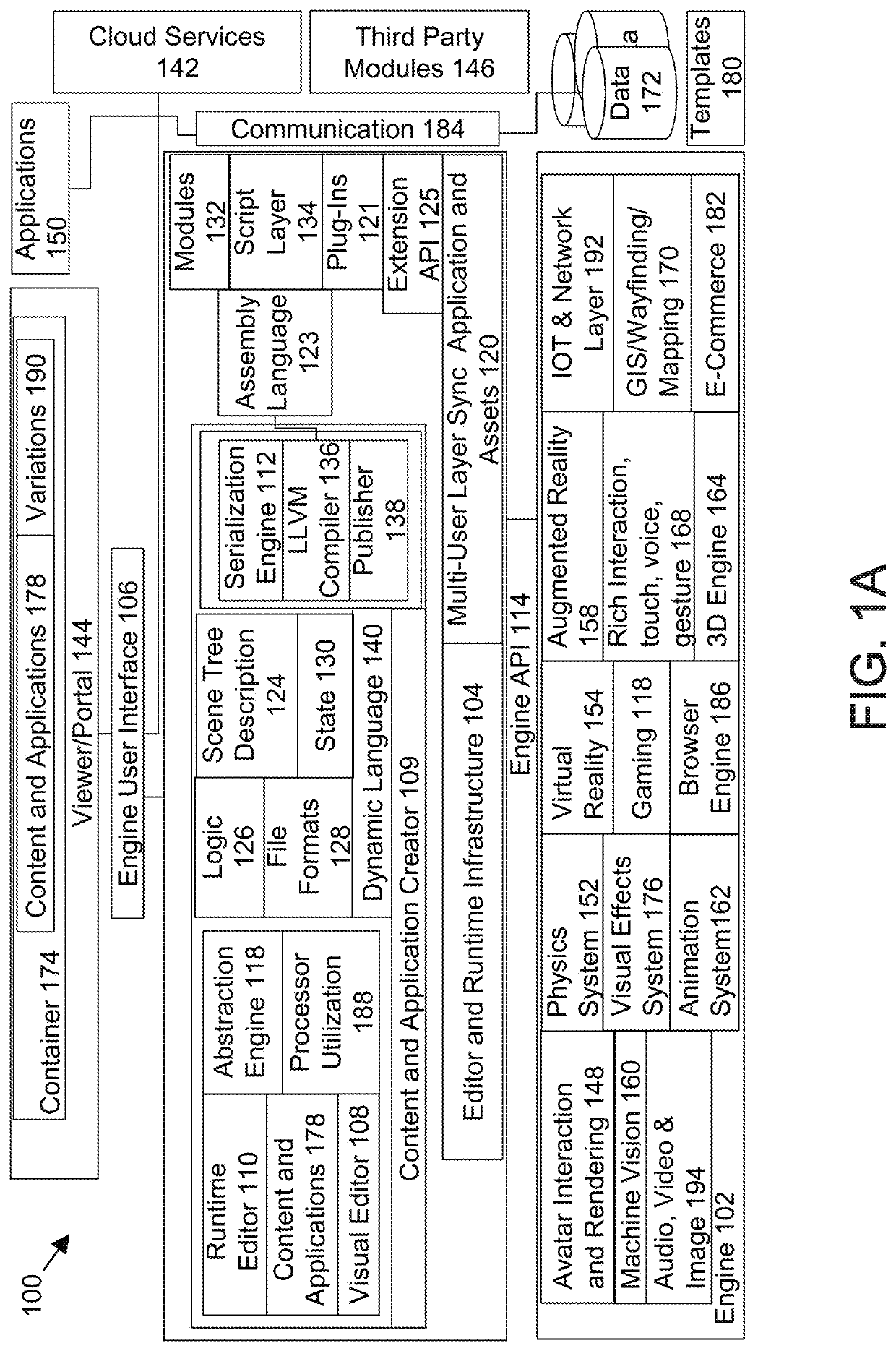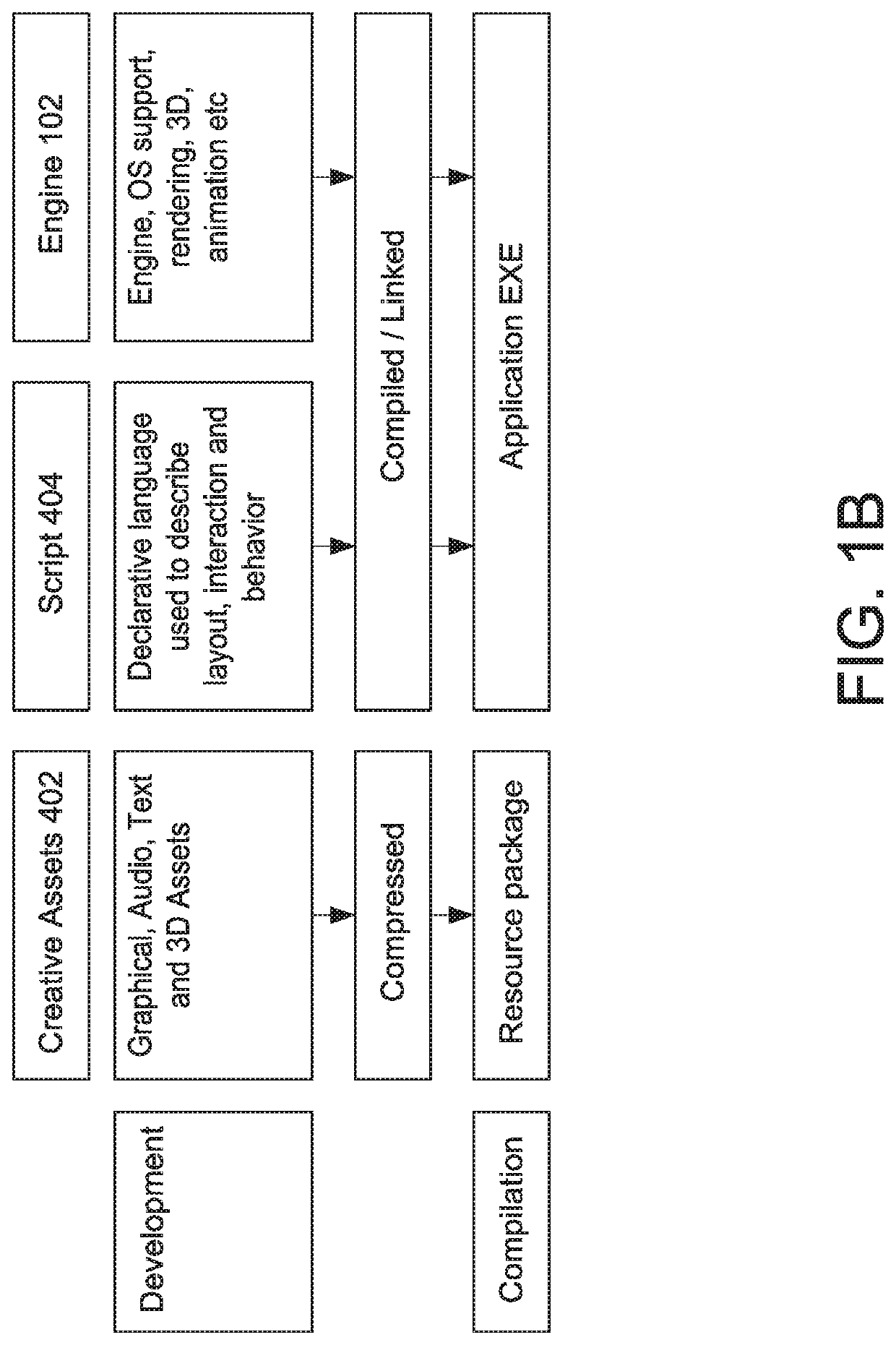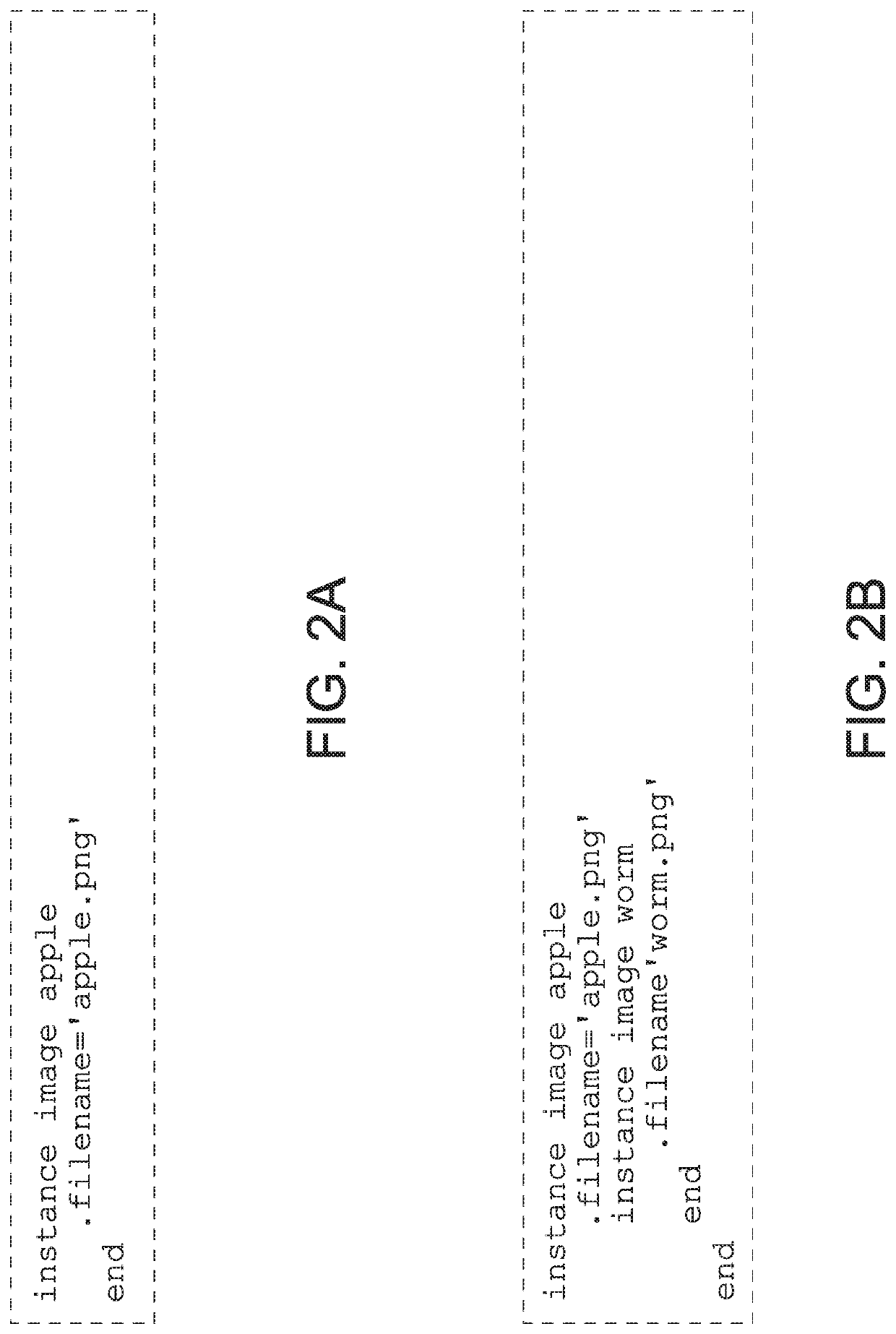Systems and methods for providing digital twin-enabled applications
a technology of digital twin and application, applied in the field of systems and methods for providing digital twin enabled applications, can solve the problems of poor design, slow performance, and many apps that fall well short of customer expectations
- Summary
- Abstract
- Description
- Claims
- Application Information
AI Technical Summary
Benefits of technology
Problems solved by technology
Method used
Image
Examples
Embodiment Construction
[0121]FIG. 1 depicts embodiments of an application system 100 (also referred to as a “content and development management platform” or “platform 100” in the incorporated materials) according to exemplary and non-limiting embodiments. In embodiments, the application system 100 may include an engine 102 and an editor and runtime infrastructure 104 that includes various associated components, services, systems, and the like for creating and publishing content and applications 178. These may include a content and application creator 109 (referred to in some cases herein for simplicity of reference as the app creator 109). In embodiments, the app creator 109 may include a visual editor 108 and other components for creating content and applications 178 and a declarative language 140 which has hierarchical properties, layout properties, static language properties (such as properties found in strongly typed and fully compiled languages) and dynamic language properties (e.g., in embodiments i...
PUM
 Login to View More
Login to View More Abstract
Description
Claims
Application Information
 Login to View More
Login to View More - R&D
- Intellectual Property
- Life Sciences
- Materials
- Tech Scout
- Unparalleled Data Quality
- Higher Quality Content
- 60% Fewer Hallucinations
Browse by: Latest US Patents, China's latest patents, Technical Efficacy Thesaurus, Application Domain, Technology Topic, Popular Technical Reports.
© 2025 PatSnap. All rights reserved.Legal|Privacy policy|Modern Slavery Act Transparency Statement|Sitemap|About US| Contact US: help@patsnap.com



